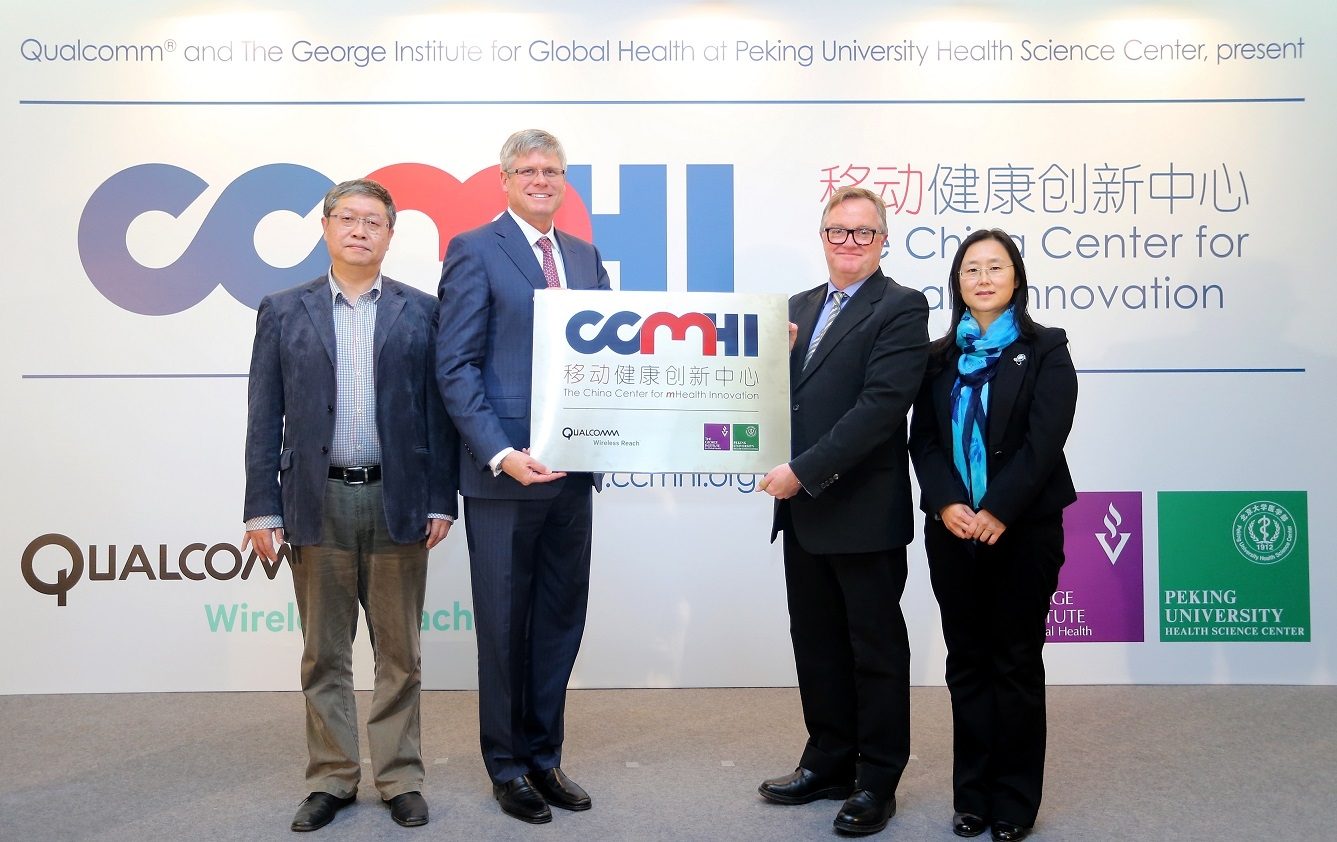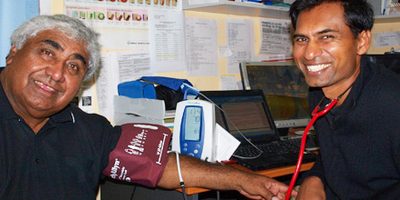
TGI partners with Qualcomm to launch new mHealth centre in China
One of the world’s largest mobile chip manufacturers and an Australian-based global health research institute have set up a new research centre in China aimed at making an international contribution to mobile health (mHealth) innovation.
Hosted by The George Institute for Global Health at Peking University Health Science Centre and funded by Qualcomm Wireless Reach, the China Centre for mHealth Innovation (CCmHI) aims to develop and test solutions that can improve the health of people in China. These solutions will be highly applicable to health systems across the globe as countries like Australia are also looking for innovative approaches to deliver safe, less expensive and high quality health care to its citizens.
The CCmHI will target the leading causes of premature death in China including stroke, heart disease, lung disease, diabetes, kidney disease and cancer. Many of the risk factors for these conditions are shared. Rather than tackling each disease one by one, the CCmHI will take a whole of health system approach to addressing these diseases.
Working with central and provincial governments, CCmHI will help improve community healthcare in China by developing mHealth tools and solutions, conducting high quality clinical trials and contributing to strategies for the implementation and scale-up of effective affordable mHealth tools.
“The George Institute is proud to partner with Qualcomm in the establishment of CCmHI as a world-class centre for mHealth innovation,” says Stephen MacMahon, Principal Director of The George Institute for Global Health and Professor Cardiovascular Medicine at the University of Sydney.
“There is a pressing need for fresh approaches to community healthcare in China and globally, particularly in resource-poor areas. CCmHI will address this need by developing new mHealth strategies designed to improve care for individuals at high risk of stroke and other important causes of premature death and disability.”
“This centre will be an ongoing example of the best of collaborations between China and Australia, to the benefit of both countries and the world,” Professor MacMahon said.
“Some of the projects we will be trialling through this centre have already been evaluated in Australia, and will be adapted for use in China. Similarly the results of research involving tools developed in China may also be applicable in Australia and around the world.
“We’re also looking forward to mentoring students from China who may wish to develop their expertise by studying in Australia, and taking those skills back to China.”
MHealth reseacher Associate Professor David Peiris, of The George Institute and The University of Sydney, said mHealth has great potential to solve health care system problems facing both China and Australia.
In a vast country like Australia there are large areas where people experience limited access to healthcare. However, even in urban areas many individuals do not have reliable health care. “Using wireless networks to support healthcare delivery is a promising way to overcome these barriers,” he said.
Similarly in China, where access to doctors can be grossly limited, mHealth systems and tools offer an alternative way of delivering healthcare to economically disadvantaged populations at a fraction of the cost.
Associate Professor Peiris said that despite the “bold promise” of mobility to deliver a higher standard of healthcare at a lower cost than the status quo, there is surprisingly little research demonstrating what works.
“Particularly in low and middle income countries, mobility could enable health care authorities to explore alternatives to higher-cost, doctor-centric models. Using other players such as community healthcare workers equipped with mobile diagnostic applications can support improved access to healthcare and frees up valuable doctor time for more complex tasks.
“Cloud and mobility also have the potential to promote consumer-driven healthcare where diagnostic and treatment information will be more easily available to individuals. It also could improve safety in hospitals where healthcare providers will have improved access to patient information via electronic health records.
“In addition, telecommunications companies are investing heavily in cloud-based telemedicine services which enable the diagnosis and treatment of people in rural and remote areas.
“The first activity of the CCMHI will be an in-depth landscape analysis of mHealth tools and infrastructure already being utilized in China primary care settings. From this analysis, the team will evaluate potential gaps and/or additional mobile tools, which are particularly well suited to address the most pressing concerns for community health throughout China. These tools will be developed by local technology partners, then tested in research trials for efficacy and cost effectiveness."








